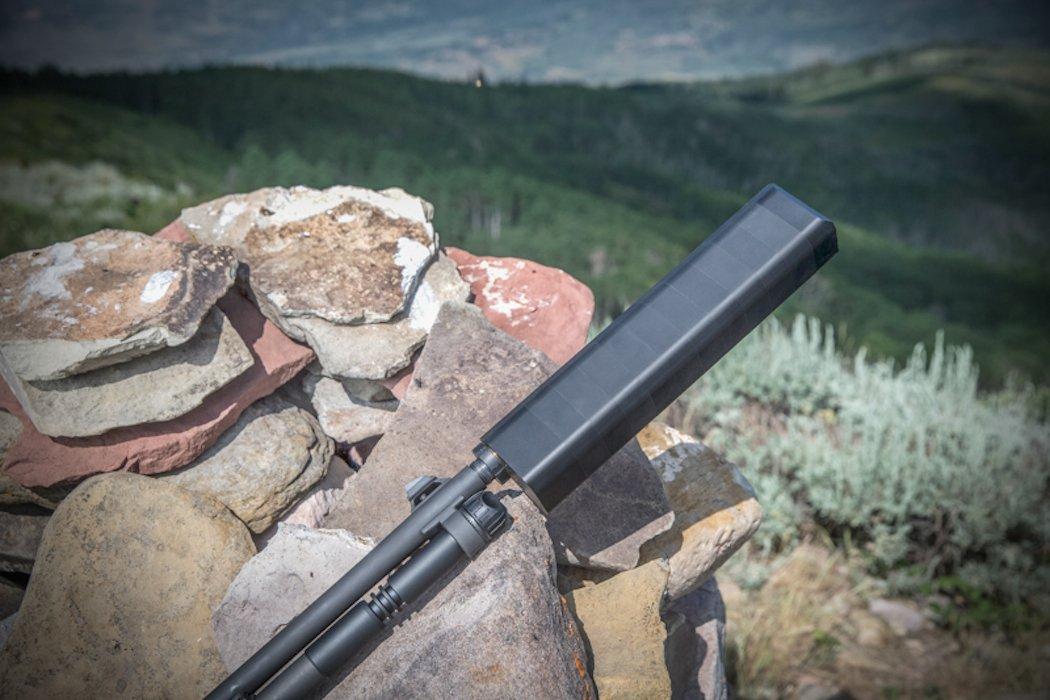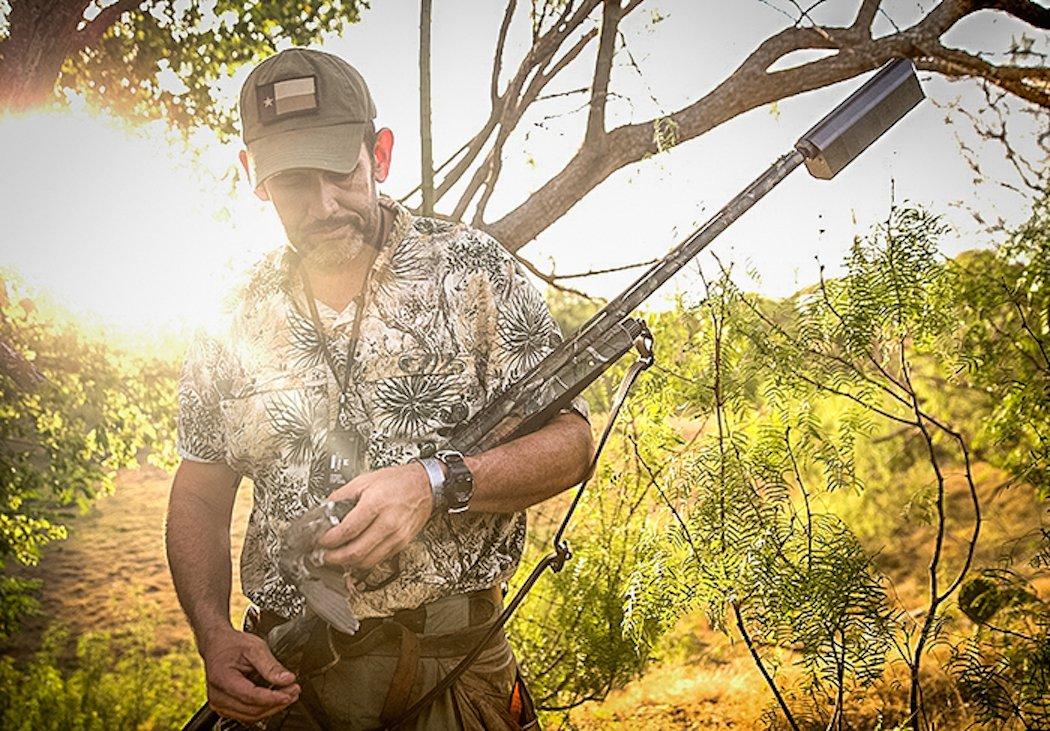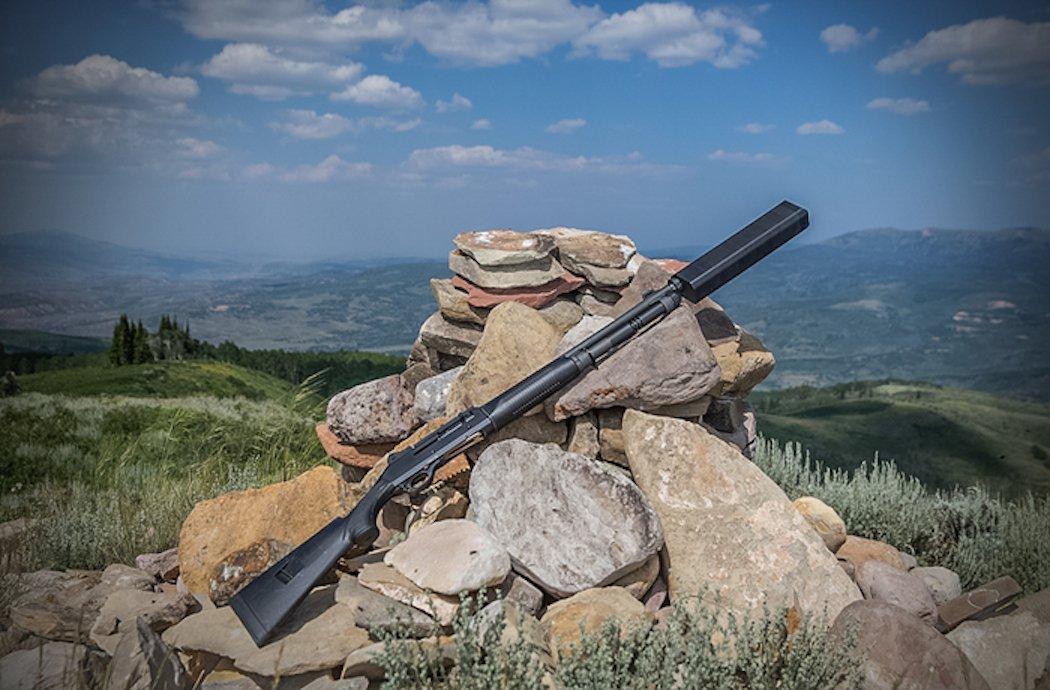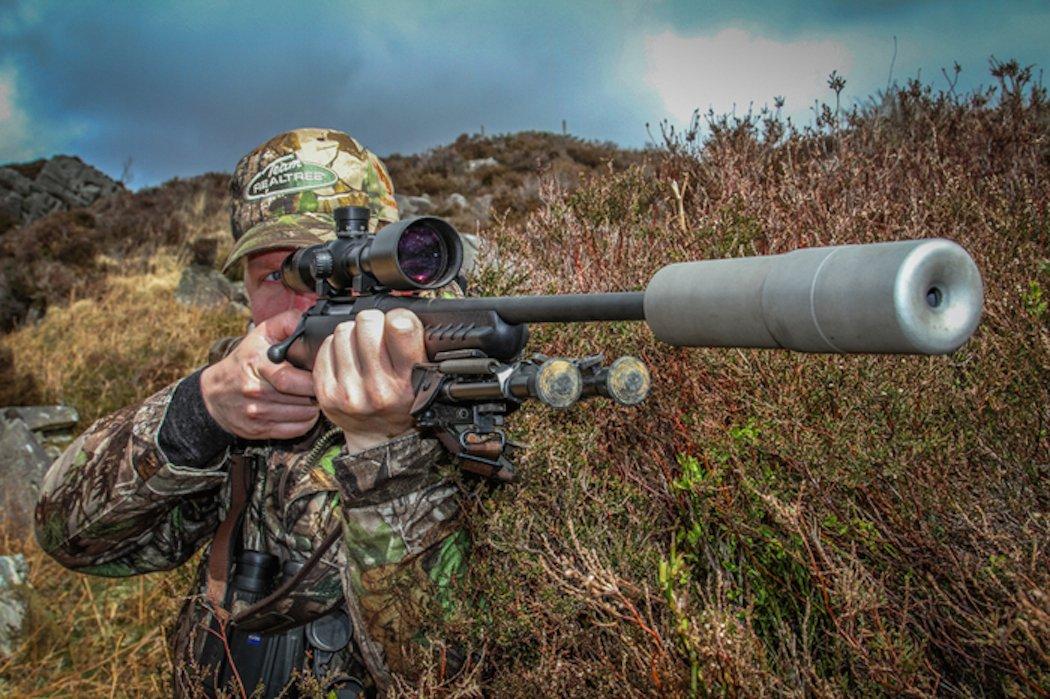There's No Need for the Noise
James Bond didn't do hunters any favors.
At least that's how Knox Williams sees it. He believes 007 movies and other celluloid fantasies gave the public many misconceptions about suppressors, some of which persist. For years, many Americans considered them tools for poachers and criminals, and most would never have considered using a suppressor on a hunting gun.
But just like Bond movies, that's changed. I still think that, by and large, people don't have an accurate understanding of how suppressors work, but more people get it now than did a few years ago, said Williams, president and executive director of the American Suppressor Association.
So many people get it, in fact, that suppressors might represent the largest growth area in the firearms market, and many previously "traditional" hunters are touting their benefits.
Why a Suppressor?
Millions of Americans have hunted for decades without using suppressors, so why would they want to start now? They're hearing, for one.

You're still going to hear the shot or the sonic crack of a bullet if it's a supersonic round, Darren Jones said, who handles public relations for SilencerCo, a major manufacturer of suppressors. It's just that you're not getting it right there at your head, and your eardrums are not getting rattled like they would if you were shooting an unsuppressed gun. The situational awareness you gain out of that is great.
I witnessed that firsthand this past spring when Jones invited me and several other outdoor writers on a Texas turkey hunt. We used SilencerCo's Salvo 12 suppressors on 12-gauge shotguns for turkeys. We test-fired the company's rifle and handgun suppressors during midday breaks at the range. The Salvo 12 reduces a shotgun's muzzle blast to a moderate crack. Rounds from .22 long rifle rimfires sounded like they were fired from an air gun — until they pinged the metal target downrange. Interestingly, .30-caliber and larger rounds, as Jones mentioned, still produced a crack, but it was substantially softer than the muzzle blast from an unsuppressed rifle.
Ask almost any hunter if they've ever used hearing protection in the field, and most say 'no,' Williams said. The people who have, have they done it every time? Almost no one has done it every time. A lot of hunters don't realize that a single shot exposure can damage your hearing permanently. It certainly starts cutting out some of the high-end frequencies. This is kind of like putting a seatbelt on your gun. It might not eliminate the risk, but it's certainly going to help.

If you want to do some general predator management on your land and don't want to go in there and just shoot it up, you're not going to make as much of an imprint with a suppressor, Jones said.
And guides love it when other folks are shooting stuff. There's no putting your fingers up to your ears. That's great.
Suppressors also reduce recoil — up to 40 percent in some calibers. That, combined with the noise reduction, can contribute to increased accuracy, as shooters aren't flinching in anticipation of a firearm's kick and muzzle blast. Jones said shooters notice the reduction more in magnum calibers, but it's still evident with the shotgun and smaller rifle calibers.
We're all out there because we enjoy shooting, Williams said. Anything that makes it a more comfortable, enjoyable experience, people are going to get more excited about it. Reducing the recoil, especially on your centerfire rifle cartridges, makes it more enjoyable. With younger or less-experienced shooters who can't handle recoil of .308 or larger calibers very well, it makes a big difference.
Ownership and Trends
Some people might not realize that suppressors are legal in most areas, and you don't have to endure a burdensome process to purchase one. Forty-one states allow civilian ownership of suppressors, and 40 allow hunting with them. Since the ASA formed in 2011, 15 states have legalized suppressor hunting, 13 have passed shall-sign or shall-certify legislation, and two have legalized suppressor ownership.

Jones also credited the Congressional Sportsmen's Foundation with helping to advance the cause of suppressors.
Suppressors are regulated by the National Firearms Act of 1934, so the Bureau of Alcohol, Tobacco, Firearms and Explosives oversees them. To purchase a suppressor, you must be a United States resident legally eligible to buy a firearm. You must live in one of the 41 states that allow civilian suppressor ownership. You must be at least 21 to buy one from a dealer and at least 18 to purchase one from an individual via a Form-4-to-Form-4 transfer (contingent on state laws). Also, you must be at least 18 to possess a suppressor as a beneficiary of a trust or member of a corporation (also contingent on state laws). You must pay a one-time $200 transfer tax and pass a BATFE background check, just as you would when buying a gun. The listed processing time of an application is four to nine months, but Jones said most people only wait about 90 days.
It's not bad, he said. We're always throwing rocks at the ATF, but they do a good job. They've stepped up their game.
And that's in the face of rapidly increasing demand. Jones said that only about 40,000 people purchased suppressors five or six years ago. That increased to about 150,000 in 2012, 180,000 in 2013, and almost 200,000 in 2014.
The Future of the Suppressor
There's no reason to think that the trend won't continue. As more hunters and shooters learn about the positives of suppressors, more will want to use them.
A lot of people are open to it but have just never done it, Williams said. There are still [a lot] of people who are vehemently opposed to it, especially if it pertains to hunting. It's sort of like 10 years ago, when the same folks said black rifles have no place in hunting because they're not sporting.
No one knows whether suppressors will match the popularity of modern sporting rifles, but they'll certainly remain a viable, growing part of the hunting and shooting scene for years.
Go here for more Realtree guns and shooting. Follow us on Facebook.
[Editor's note: This Realtree.com feature article was first published Dec. 1, 2015.]







